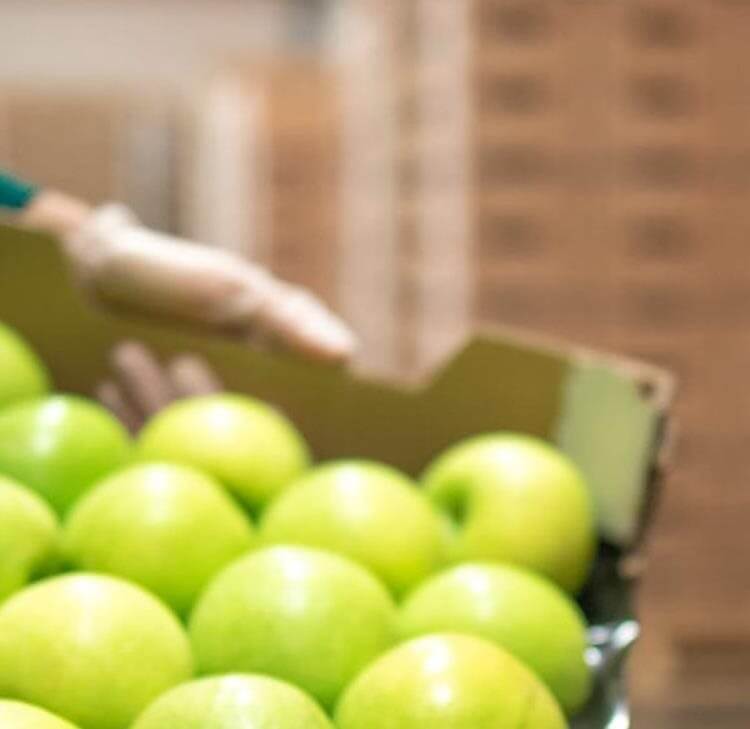Food and drink exports like tea, dairy and alcohol could be affected by US tariffs imposed by President Donald Trump.
The sector is one of the largest exporters for both the UK and Ireland, while the US is one of the biggest customers – accounting for 10% and 11% of exports respectively.
In the first nine months of 2024 alone, the UK shipped 460 million cups of tea and 436 million biscuits across the Atlantic.
Previous tariffs have led to significant declines in sales for Scotch whisky, Irish whiskey and dairy products such as Kerrygold, the Irish brand that has become the second-best seller Stateside, with sales worth €500m in 2024.
Sam Sharp, Partner in the corporate team who heads up the food and drink group at UK and Ireland law firm Browne Jacobson, examines the potential impact of US tariffs on the sector and next steps for businesses.
Responding to US tariffs in food and drink sector
The disruptive tariff impact on global trade creates huge uncertainty across the food and drink sector, with SMEs – which represent about 99% of the sector in both the UK and Ireland – disproportionately impacted by factors such as rising costs from increased tariffs and inflation.
Businesses should be ready to respond quickly in navigating supply chain challenges and mitigating potential damage, while governments should seek to increase domestic food security.
This was already high up the agenda in the UK, where a proposed Land Use Framework aims to provide the principles, data and tools to support local government and industry decision making in maximising land use.
The UK Government should also be championing 'Brand Britain' and looking to reduce friction with other trading partners – most notably the EU, which is already an aim of the government but one that should be expedited due to the ongoing uncertainty, even if the US tariffs are removed or reduced. Ireland would similarly benefit from a closer relationship with the UK, its single biggest market for food and drink products.
Scotch and Irish whisky could be particularly impacted given their historically strong performance in the US, so it’s important both the UK and Irish governments review any specific support needed by producers.
While Ireland’s future trading relationship with the US will be determined by the EU, any attempt by the UK to broker a transatlantic trade deal should not result in food quality standards being reduced.
Previous negotiations have involved concerns over the UK being flooded with American chlorinated chicken and hormone-treated beef, which could threaten to undermine UK food quality and self-sustainability.
Legal repercussions and takeaways for businesses
The immediate issues for businesses revolve around supply chain challenges and corresponding agreements/arrangements, and we may also see an impact in the M&A market.
Key issues to consider include:
- Reviewing termination provisions in supply agreements - particularly force majeure clauses, if tariffs significantly impact the ability to fulfil contractual obligations.
- Monitoring supply chain issues (like increased costs or otherwise) which could lead to breaches of contracts and therefore lead to a rise in disputes and litigation.
- Understanding dispute resolution options, such as arbitration, mediation and litigation or renegotiation where possible.
- Identifying where new opportunities could arise and exploring new markets, which can be supplied either by contracting directly or through agents or distributors.
Discover more
You may be interested in
Legal Update
How will US tariffs affect energy and infrastructure sectors in UK and Ireland?
Legal Update
Navigating US tariffs: Practical guidance for global businesses
Legal Update
US tariffs: Implications for the UK automotive sector and practical steps for businesses
Legal Update
US tariffs: Implications for the food and drink sector in UK and Ireland and practical steps for businesses
Legal Update
US tariffs: Market chaos and implications for the UK tech sector
Legal Update - Beyond Borders insights
Beyond Borders, Spring 2025
Legal Update
Alcohol charity on the “Naughty List” for attempts to trade mark “DRY JANUARY”
Legal Update
Considering the growing trends of mindful drinking
Legal Update
DEFRA provides clarity around the GB wide 'Not for EU' labelling obligations
Legal Update - Beyond Borders insights
Beyond Borders, December 2024
Legal Update
The EU Cyber Resilience Act (CRA)
Legal Update
Navigating the waters of compliance: Understanding the Trade, Aircraft, and Shipping Sanctions (Civil Enforcement) Regulations 2024
Legal Update
Supreme Court re-instates injunction in Tesco fire and re-hire case
Legal Update
The future of food waste management in the UK: A guide for businesses
Opinion
Forced labour goods: a landmark decision
Press Release
Browne Jacobson contributes to report promoting greater UAE-UK collaboration in cancer care
Opinion
New hope for the manufacturing sector?
Legal Update
Navigating Oil Price Cap legislation: LMA issues revised Cargo and Hull wordings
Legal Update
The Home Affairs Committee launched another inquiry into fraud - Stop! Think Fraud
Legal Update
Veganism and manufacturing: Supply chain issues
Press Release
Browne Jacobson partner Jeanne Kelly elected President of the British Irish Chamber of Commerce
Published Article
Kick-starting the UK hydrogen economy
Published Article
What are freeports and what benefits could they offer?
Legal Update
Digital Markets Act and Data Platforms - FRANDs for life?
The Digital Markets Act (the “DMA”) joins the dots between competition law and data protection law and actively targets data-driven platforms. It is also a comprehensive regulation to take note of, with familiar GDPR-style fines tied to turnover.
Legal Update
The Omnibus Directive is almost here
Legal Update
New year, new Brexit transport rules
From 1st January, new import rules come into effect, with potential for significant delay, disruption and cost for importers and exporters.
Legal Update
REACH Registration post-Brexit
Although the UK’s departure from the EU means that the EU REACH regulation no longer applies, UK REACH has stepped in to fill the gap, and UK-based companies exporting to the EU are now facing two chemicals regulation frameworks to deal with when before there was just one. Is your company ready for the challenge?
Legal Update
Corporate finance update - May 2021
The Browne Jacobson corporate finance team continues to be a leading advisor, receiving recognition as the go-to advisor, for corporate M&A and private equity transactions.
Guide
Brexit overview: intellectual property and Brexit
We can how help you understand the potential issues that any changes will have on your business.
Guide
Brexit overview: competition law and Brexit
We can how help you understand the potential issues that any changes will have on your business.
Guide
Brexit overview: your use of data and Brexit
Despite the lack of clarity around Brexit, there are key data issues that can be addressed now. We can help you with the steps you need to take to mitigate the risks.
Guide
Brexit overview: your corporate structure and Brexit
We can help you navigate uncertainty, mitigate any legal risks and even find ways for your organisation to capitalise through a more efficient corporate structure.
Guide
Brexit overview: your commercial contracts and Brexit
Although there is significant uncertainty over how Brexit will affect organisations trading across the EEA, we can help you put together an appropriate action plan.
Guide
Brexit overview: your people and Brexit
Despite the uncertainty, however, we can help you take some sensible steps now to prepare your workforce for the implications of Brexit.
Legal Update
The Internal Market Bill – an overview
The United Kingdom Internal Market Bill was introduced in the House of Commons on 09 September 2020 (the Bill), provoking much debate and attracting criticism from many. But what exactly is contained within the Bill?
On-Demand
Parallel Imports - what brand and IP owners need to know
Parallel importers seek to exploit price differentials for goods sold in different countries. The EU principle of exhaustion of rights prevents businesses from enforcing their IP rights to restrict this secondary trade within the EU if the goods were first marketed in the EU with their consent, other than in limited circumstances.
Legal Update
Third country bidders and goods in the EU procurement market
On 24 July 2019 the European Commission issued ‘Guidance on the participation of third country bidders and good in the EU procurement market’ which provides practical advice to EU contracting authorities on how to deal with bidders from outside of the EU.
Press Release
Browne Jacobson ranked as one of UK’s ten most active dealmakers
Law firm Browne Jacobson has been named as one of the most active M&A advisers in the UK for the first half of 2019, according to an independent report.
Legal Update
Government publishes response to Joint Committee report on the draft Registration of Overseas Entities Bill
Last month we reported that the House of Lords and House of Commons Joint Committee report on the draft Registration of Overseas Entities Bill had been published.
Published Article
Deal or no deal - the impact of Brexit for the gas industry
In the wake of the Brexit withdrawal deal being unequivocally rejected by Members of Parliament on 15 January 2019, there is significant uncertainty for not only the gas sector but for the economy in general.


























